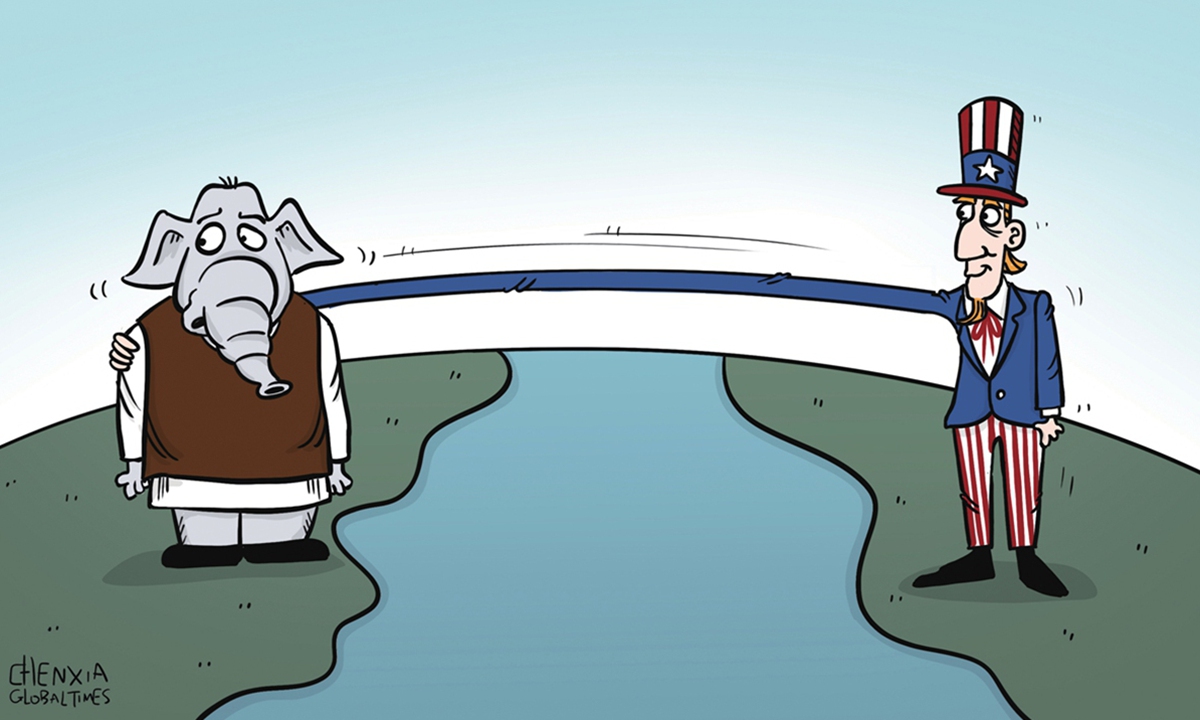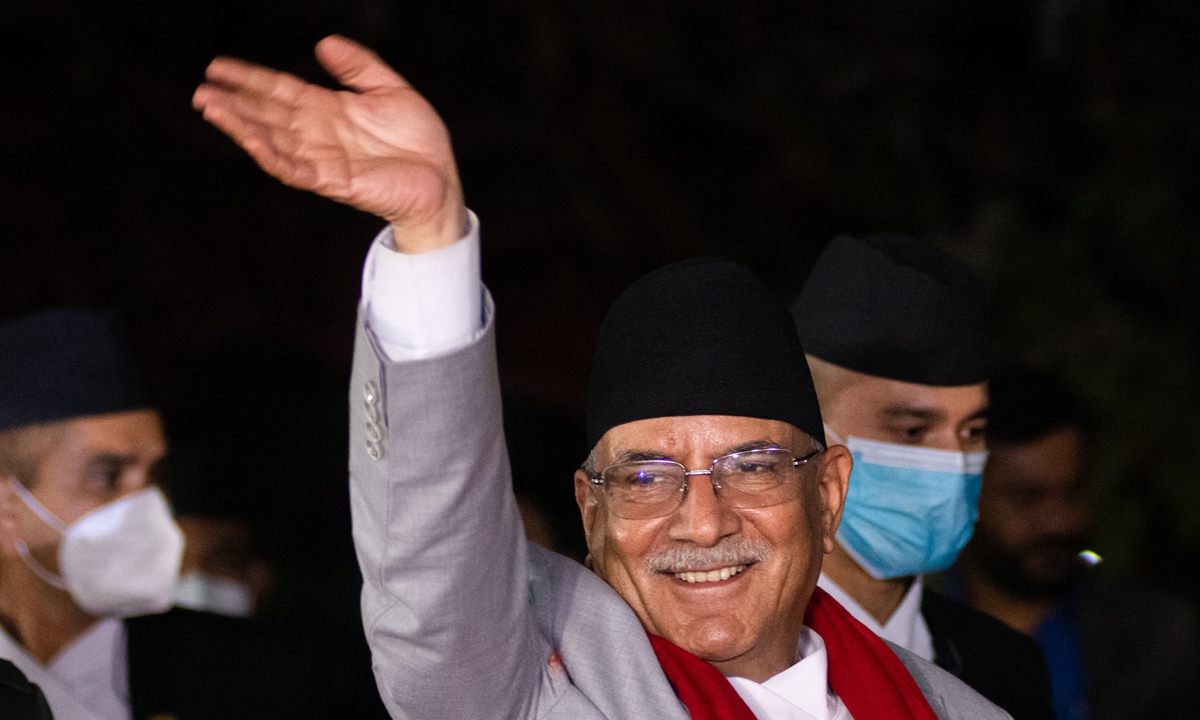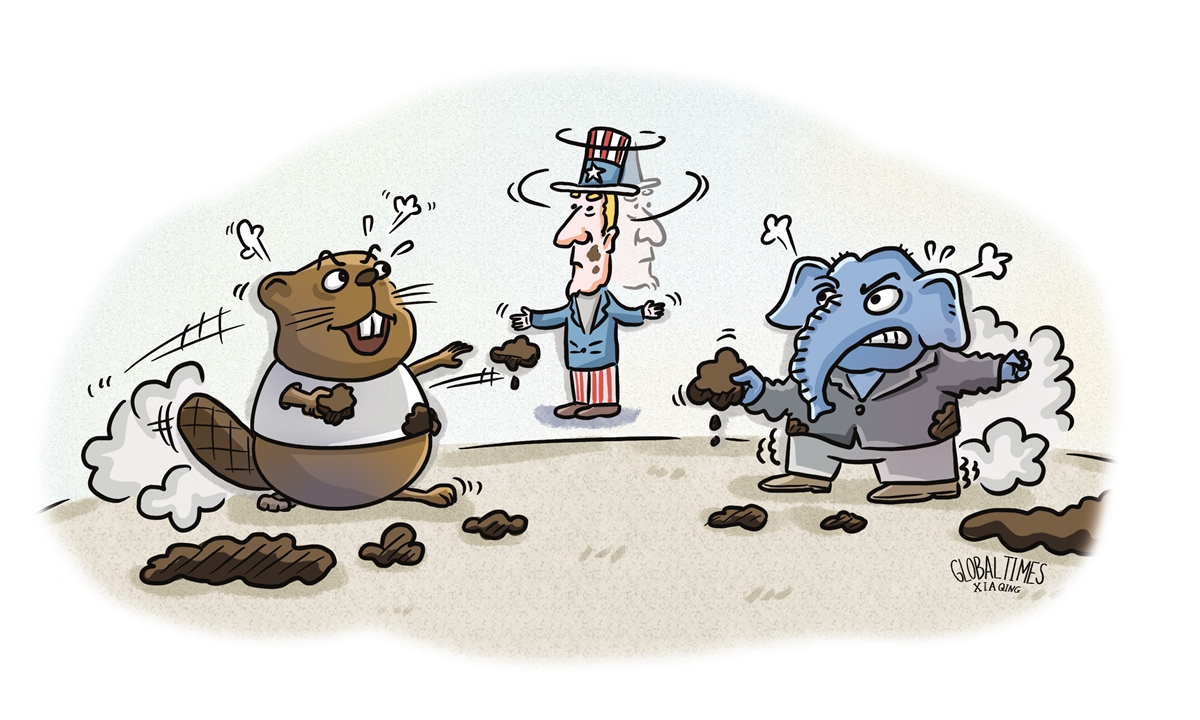
US, India Illustration: Chen Xia/GT
During the recently concluded G20 summit, the US and India revealed cracks on many international issues, indicating that the US-India relationship is far from being as rosy as it appears.
As two large countries at different stages of development, India and the US have different attitudes toward a series of international issues. As a developing country, India's top priority is to achieve economic development, whereas the US is seeking to contain China and maintain its global hegemony.
First, India and the US-led West have had differing approaches on issues related with climate change and energy. India, as a developing country, has emphasized the priority for economic growth and has been more reliant on sourcing coal for its energy needs. Raj Kumar Singh, India's minister for power and renewable energy, recently accused the West of hypocrisy over energy transition, according to the Financial Times.
Second, the US and India have been struggling to reach agreements in trade negotiations. Although the US proposed the Indo-Pacific Economic Framework for Prosperity (IPEF) and held talks with India on the initiative, India still chose not to join the IPEF trade pillar. Market access has not been agreed upon for India, which is being viewed as a crucial factor to join the trade pillar, according to media reports.
Third, although there are signs that the US supports India in taking over manufacturing transfers from China, the goal of the US is actually to bring manufacturing back and ensure employment opportunities in the US. From the Trump administration or even earlier, there have been conflicting interests between the US and India in this regard.
Fourth, the US and India encountered tensions on whether to include the Russia-Ukraine issue in the joint declaration of the G20 summit. In the first half of 2023, the trade between Russia and India increased by 190 percent year-on-year. The surging trade between India and Russia despite the US-led West's attempt to isolate Russia indicates differences in the positions of the US and India on Russia-related issues.
In co-opting India, the US mainly wants to take advantage of India's strategic position in the geopolitical landscape. India is well aware of the US' intention and understands that the US is trying to use India as a counterweight to contain China. India is also aware that the fundamental objective of the US is to maintain its own hegemonic status.
What India is doing is maintaining its own stance on major international issues while seeking to benefit from dealing with the US, such as accessing the US market and technology. India will avoid challenging the US on international issues; nevertheless, India will not sacrifice its own interests just to cater to the US.
During the G20 summit, India, in the process of setting the agenda, displayed a clear goal of competing with China to become a leader in the developing world. Despite major differences, India and China, both being major developing countries, should actively expand cooperation.
In recent years, China-India economic and trade relations have achieved continuous growth despite the impact of the COVID-19 pandemic. Admittedly, the issue of imbalance in China-India economic and trade relations should not be ignored, but, more importantly, both sides can see the enormous benefits that expanding and deepening cooperation can bring. Trade between China and India reached 619.69 billion yuan ($84.49 billion) during the first eight months of 2023, up 5.2 percent year-on-year, according to Chinese customs data.
At present, peace and mutually beneficial cooperation are of utmost importance for both China and India. Only by actively expanding and deepening cooperation can the two sides seize opportunities and achieve economic and social development. If India falls into the geopolitical trap set by the US and allows its relationship with China to slide from benign competition to confrontation or even worse, it will seriously harm the interests of both countries.
In the face of great development opportunities, India should be aware of where its own interests lie and not be easily manipulated or used by the US. India should adopt a more rational approach in coordinating its relationship with China and work together to contribute to the stability and development of the developing world.
The author is an associate research fellow at the National Institute of International Strategy under the Chinese Academy of Social Sciences. bizopinion@globaltimes.com.cn



